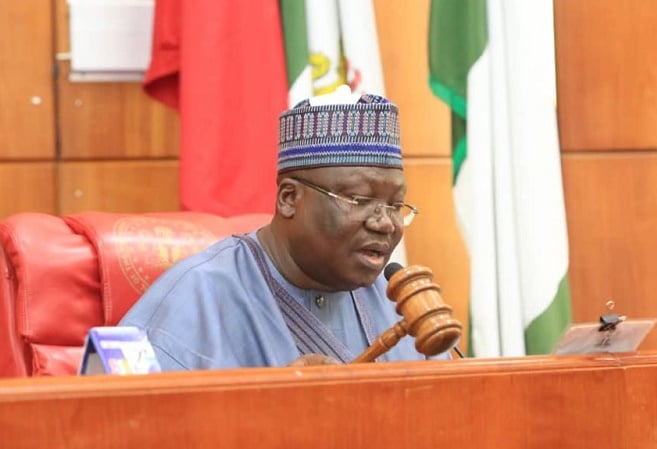On Monday, President Muhammadu Buhari assented to an amendment bill that reviewed the deep offshore and inland basin production sharing contract (DOIBPSC).
The amendment is expected to earn Nigeria an extra $1.4 billion in oil revenue per annum because of the new terms.
Before now, the exploration companies did not pay any royalty on oil found 1000 metres in water depth. This was designed to encourage investment in the deepshore, but the terms of the production sharing contract (PSC) were supposed to be reviewed after 15 years when the contractors would have recovered their costs and when oil price might have hit $20 per barrel.
Although Nigeria signed the first set of PSCs in 1993, while the DOIBPSC was enacted in 1999, the country has not reviewed the act since then.
Advertisement
It is estimated that the country has been denied over $60 billion in revenue over time.
Now that the law has been amended, all PSC productions will now attract royalty based on a combination of water depth and oil price. For productions from 200 meters, royalty rate now ranges from 10 percent when oil price is below $20 per barrel to 20 percent when oil sells above $150 per barrel.
It is interesting to note, however, that Femi Falana, senior lawyer and social rights activist, in fact called for the review as far back as 2015.
Advertisement
In a keynote address he delivered on July 24, 2015 at the 7th annual lecture of the Nigerian Institute of Quantity Surveyors, Lagos State chapter, the senior advocate of Nigeria had raised the alarm over the huge revenue losses being incurred by Nigeria for its failure to amend the act.
Falana had in the address said the international oil companies operating in Nigeria were taking advantage of the loopholes in the act to avoid the payment of royalties, and that the fiscal incentives given to the oil companies have led to the loss of “several billion of dollars.”
The lawyer had said: “It is interesting to note that while the Federal Government and some governors are concentrating all attention on the NNPC, transnational oil companies are smiling to the bank at the expense of the country. Apart from the despoliation of the oil producing communities without remediation, the ‘oil majors’ are exempted from paying royalties to the Federation Account under an expired law.
“In 1999, the Abdulsalami Abubakar military junta enacted the Deep Offshore inland Sharing Contracts Act Decree to give effect to certain fiscal incentives for the oil and gas companies operating in the Deep Offshore and Inland Basin under production sharing contracts between the Nigerian National Petroleum Corporation (NNPC) and other companies holding oil prospective licences or mining licences and various petroleum exploration and production companies.
Advertisement
“Thus, by virtue of section 5 of the Act, the payment of royalty in respect of the Deep Offshore production sharing contracts shall range from 4 to 12 per cent while no royalty shall be paid whatsoever in areas in excess of 1000 metres depth!
“Since a large quantity of the oil produced by Nigeria is located beyond 1000 metres depth, the transnational oil companies have taken advantage of the Act to avoid the payment of royalties. The fiscal incentives given to the oil companies have led to the loss of several billion of dollars by the Federal Government.
“As the existence of the obnoxious law can no longer be justified, the National Assembly ought to repeal or amend it by taking advantage of section 16 thereof which provides for a review “after a period of fifteen years from the commencement and every five years thereafter.”
“In view of the fact that the 15-year period of for non-payment of royalties expired last year, the National Assembly should amend the Act by deleting the section thereof which provides for zero per cent royalty in excess of 1000 metres depth.”
Advertisement
Add a comment







